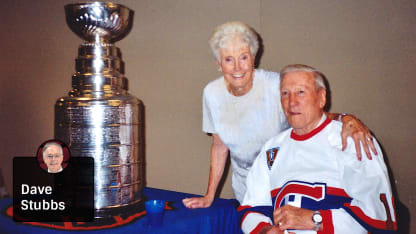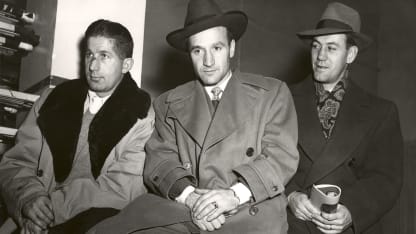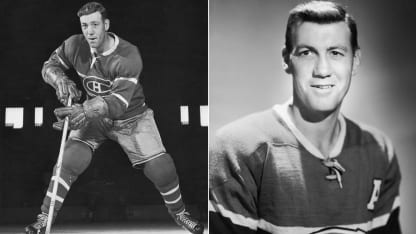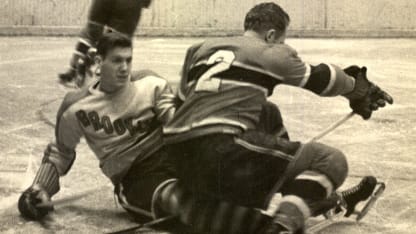The Stanley Cup arrived in Ken Mosdell's tidy retirement-home apartment 12 years ago today, and a man whose name was engraved four times on the priceless trophy as a member of the Montreal Canadiens said more with his moist eyes and broad smile than words ever could.
For the past two decades, in one of the great Stanley Cup traditions, each player and coach from the champions spends a summer day with the trophy, as do select others from the team. This month and next, the Cup is scheduled to visit at least six countries with members of the Pittsburgh Penguins, no doubt making a few return trips to venues from last summer, when the Penguins celebrated their 2016 championship.
Mosdell moved by Stanley Cup visit in 2005
Four-time champion with Canadiens got reacquainted with trophy months before death





















